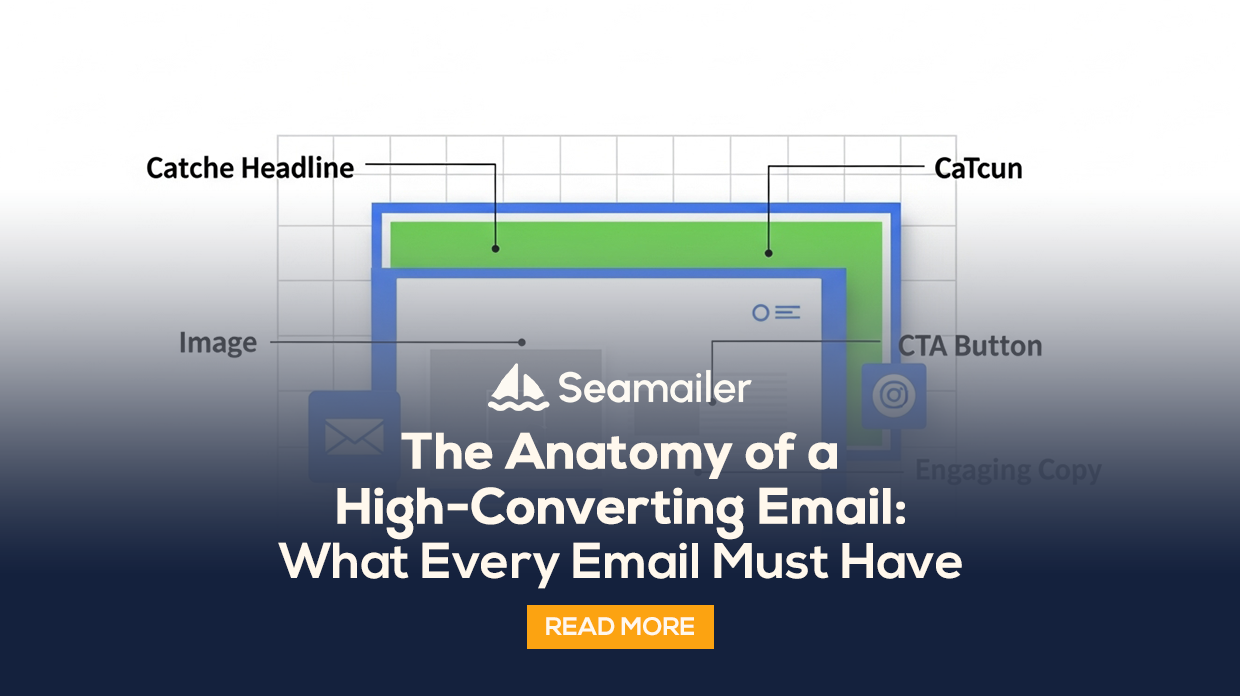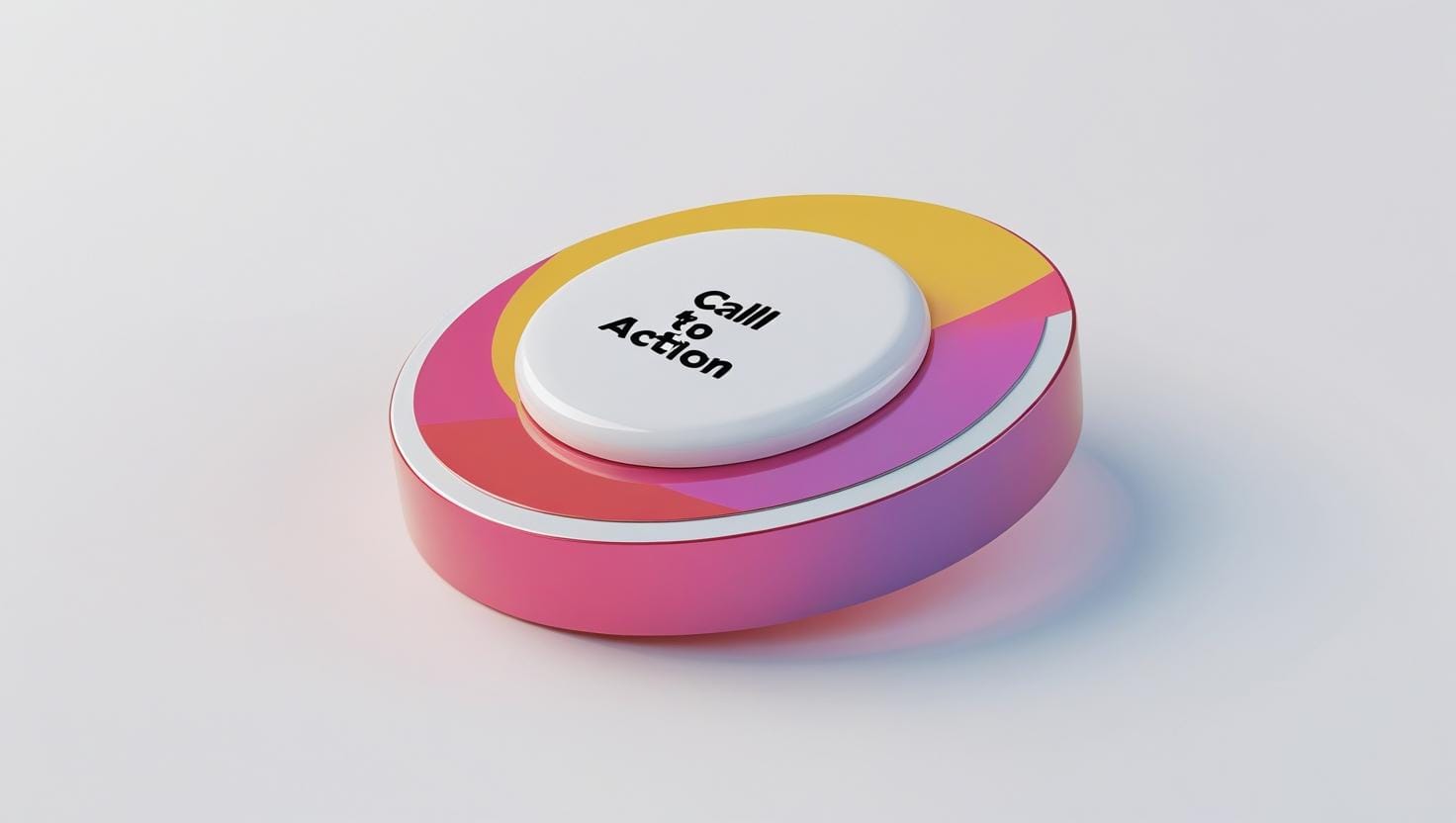The Anatomy of a High-Converting Email: What Every Email Must Have

We live in a world where attention is the new currency. Your subscribers' inboxes are battlefield zones filled with noise, promotions, and distractions. Winning that first open, click, and eventual conversion hinges on a finely tuned email—an email crafted with intention and strategy.
This isn’t about guessing or applying generic tips. This is about dissecting real-world, high-performing emails and reverse-engineering what makes them work. Let’s break down the anatomy of a high-converting email, from the subject line to the postscript
The Subject Line: Your First Impression
If your email were a movie, the subject line would be the trailer. It’s the gatekeeper to your message. Without a compelling subject, your email won’t even get opened. Subject lines are not headlines. They are bait. And the best bait makes the reader curious, not overwhelmed.
What works:
- Curiosity-driven: "You forgot something..."
- Benefit-led: "Double your open rates in 3 minutes"
- Urgency-based: "Last call: 80% off ends tonight"
Keep it under 50 characters, Use action verbs and A/B test relentlessly.
The Preview Text: The Silent Salesman
Often overlooked, preview text acts as your second chance to grab attention. This is the snippet that appears beside or beneath the subject line in inboxes. It is where nuance plays. That ghost of a line beside the subject. It’s your silent partner, whispering a reason to click.
Think of it as a movie trailer. It doesn’t tell the story. It teases the payoff.
What Works:
- Reinforces the subject line
- Teases the value inside
- Avoids repetition of the subject line
Example: Subject: "Don’t skip this update." Preview text: "Here’s how we’re helping users increase revenue by 35%."
The Sender Name: Trust Factor Amplified
Subscribers open emails from names they recognize and trust. Generic sender names like "noreply@company.com" are dead giveaways for mass emails.
Best Practices:
- Use a real person’s name + company (e.g., "Amanda from Seamailer")
- Stay consistent across campaigns
- Make it human
When the email feels like it came from a person—not a machine—you’ve gained a microsecond more attention. That's all you need.

The Hook: First 2 Lines of Body Copy
You have 3 seconds after the open. That’s your window to stop the scroll. Your first sentence must be magnetic.
Examples of Great Hooks:
- "Quick story before your coffee gets cold..."
- "Ever felt like your email efforts go into a black hole?"
Keep it conversational. Make it relatable. Set the tone for what’s coming. Hooks are not hype. They are truth sharpened like a blade. They cut through the noise and pull the reader forward.
The Body: Value Before Pitch
Here’s where you deliver the goods. The reader has trusted you enough to open the email. Now your job is to:
- Inform or educate
- Solve a micro-problem
- Entertain or engage
Avoid dense blocks of text. Use:
- Bullet points
- Short paragraphs
- Strategic bolding
Flow. Rhythm. Space. That’s what your body copy needs. No jargon. No corporate-speak. Speak to one person. In one breath. In one tone. Don’t sell. Start a conversation. Emails aren’t lectures. They’re nudges.
The Call-to-Action (CTA): Clarity Converts
No matter how good your email is, without a clear next step, it fails to convert. Your CTA should be unmistakable.
Examples:
- "Download the free guide"
- "Reserve your seat"
- "Start your 7-day trial"
CTA Must-Haves:
- One clear action
- Button or bold link
- Repeated once mid-email and once at the end

Visual Elements: Emails Are Not Essays
Text-only emails may work in some B2B niches, but most high-converting emails use visuals to guide attention. Humans are visual creatures and an all-text email is like a song with no rhythm.
Ideas That Work:
- Product GIFs
- Customer testimonial images
- Charts showing results
Don’t overdo it. One well-placed visual can replace 300 words.
Personalization: The Conversion Multiplier
Personalization isn’t just using a name. We’re past the era where using a name was impressive. It’s about relevance. Relevance wins.
Deep Personalization Includes:
- Referencing past purchases
- Suggesting related content
- Dynamic content blocks based on behavior
Tools to Use:
- Seamailer smart tags
- Behavioral segmentation
- Purchase-triggered sequences
Behavioral data is your best friend. Segment your audience. Speak to where they are, not where you wish they were.
Social Proof: Borrowed Trust
People trust people. Real people. Real results. Minimal polish. In an inbox filled with promises, proof is your differentiator.
Integrate:
- Testimonials
- Star ratings
- Case study snippets
Make it short, authentic, and placed near your CTA.
Mobile Optimization: Non-Negotiable
Over 60% of emails are opened on mobile. If your email doesn’t render well, it’s deleted instantly.
Mobile-Ready Musts:
- Responsive design
- Large tap-friendly CTA buttons
- Single-column layout
Footer Done Right
Most footers are legal dumping grounds. The footer is prime real estate—don’t leave it as legal noise. Reinforce your brand. Offer more value. Share useful links. Provide contact details
Don’t Forget:
- Unsubscribe link
- Social media icons
- Physical address
End strong. Not silent.
The Hidden Magic: Testing
Every brand has its own audience rhythm. You won't find it by guessing. You find it by testing. A/B subject lines. Test morning vs. evening. Emojis or not? Button colors? CTA phrasing? No email is perfect from day one.
A/B testing reveals:
- Best subject lines
- Most clicked CTAs
- Ideal send times
One tweak can change your conversion rate forever. Find it.
Timing: When Matters More Than You Think
Send at noon? At 6 a.m.? On Sundays? The answer is: it depends. On your niche. On your readers. On their behavior.
Start with benchmarks—Tuesdays and Thursdays still dominate—but don’t assume. Test relentlessly.
Conclusion: High-Converting Emails Are Built, Not Sent
Every high-converting email is the result of deliberate choices: words chosen, visuals placed, timing tested, and intent clarified. It’s not about writing emails. It’s about engineering experiences inside the inbox.
Use this anatomy as your blueprint. Keep testing. Stay human. And above all, make sure every email respects the time and attention of the person reading it.
Need to send better emails? Seamailer gives you the tools to craft magnetic messages that don’t just get opened—they get acted on.
Start free. Start now.

